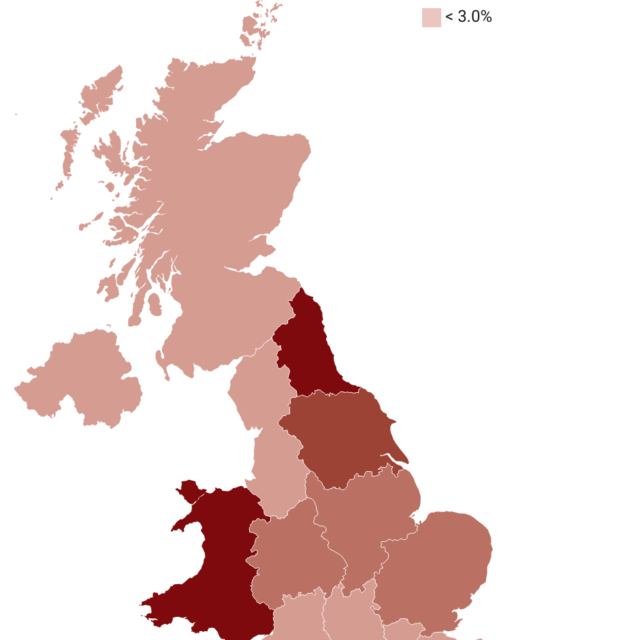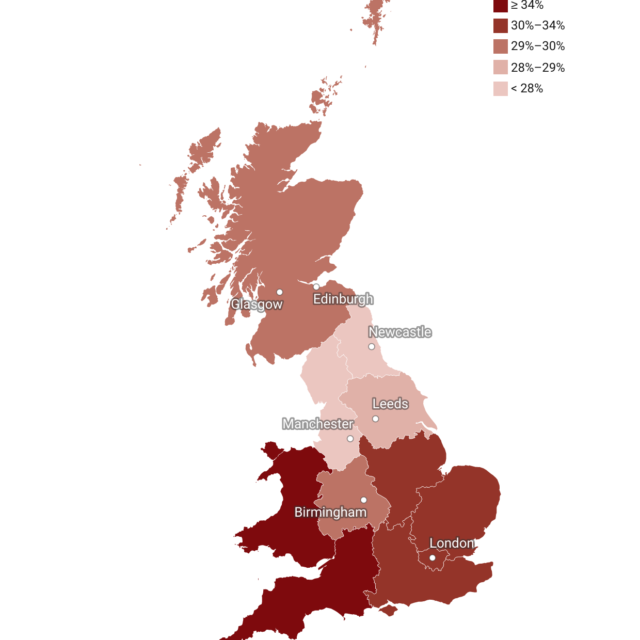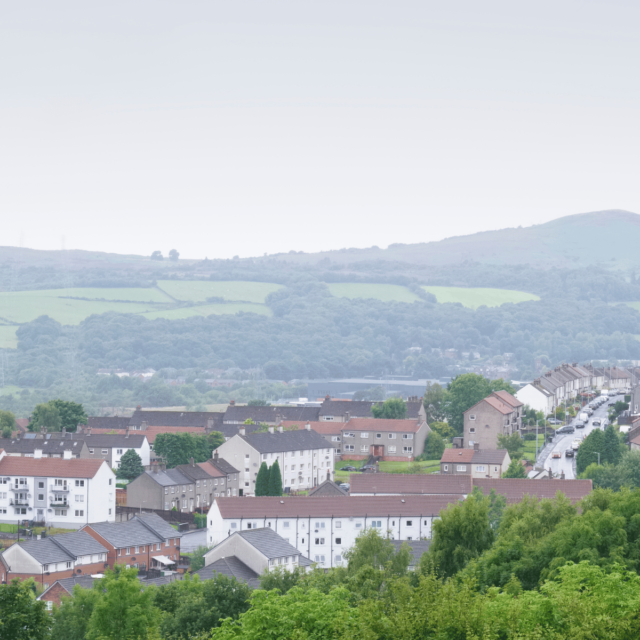- Home
- Publications
- Commentary: The Great Divides
Commentary: The Great Divides
 Pub. Date
Pub. Date
 Pub. Type
Pub. Type

Downloads
Commentary: The Great DividesAuthors
Related Themes
Destitution, Exclusion, and Strategies for Well-BeingPolitical EconomyProductivity, Trade, and Regional EconomiesJournal
National Institute Economic Review, No. 259, Vol. Winter, Pages: 1-6
Publisher
Cambridge University Press
External Resources
Countries, societies and families can, of course, be divided. The UK has often been described as being divided along a North-South line running from The Wash to the Severe, or from the River Tees to the River Exe. Indeed the North-South divide once again became an enduring feature of the economic and cultural landscape in the late 1970s and early 1980s. At least initially this divide was related to the decline of traditional primary (for example, mining) and secondary (manufacturing) industries and the rise of the service sector in London, which increasingly provided legal, financial, accounting and educational services to the rest of the world. Oddly enough both sets of industries, whether in decline or still growing by the later twentieth century, had deep roots in the industrial revolution. This simple observation tells us that we cannot know today which sorts of industries will necessarily thrive into the twenty-first century: Hoxton hipsters making furniture might dominate the pricing of credit default swaps. And the problem then facing the design of political institutions is to create some form of risk sharing that means, at least to some extent, all can benefit from individual success without damaging the prospects for that success. Failure to manage that change recently lies at the heart of rising populist momentum.
Related Blog Posts

Child Language Brokering: What It Is and How It Is Experienced By Migrant Families
Domiziana Turcatti
Ekaterina Aleynikova
Adrian Pabst
29 Jan 2024
7 min read

What are the Experiences of Latin American Migrants Accessing Healthcare?
Jasmin Rostron
Ekaterina Aleynikova
16 Oct 2023
5 min read

A Review of UK Asylum Policy for Refugee Week 2023
Ekaterina Aleynikova
Adrian Pabst
19 Jun 2023
4 min read

Are Price Controls on Food a Viable Option?
Arnab Bhattacharjee
Adrian Pabst
12 Jun 2023
6 min read
Related Projects
Related News

1.2 million UK Households Insolvent This Year as a Direct Result of Higher Mortgage Repayments
22 Jun 2023
2 min read


Thousands Of Households Projected To Face Monthly Mortgage Repayments Greater Than Their Monthly Incomes
03 Nov 2022
2 min read

Related Publications

The Nature of the Inflationary Surprise in Europe and the USA
21 Mar 2024
Discussion Papers

Supporting Immigration Advice Amidst Financial Challenges: Local Authorities’ Funding Initiatives
29 Feb 2024
Topical Briefing

Implications of the Transition from Defined Benefit to Defined Contribution Pensions in the UK
07 Feb 2024
UK Economic Outlook Box Analysis

Exploring Alternative Data Sources for Household Wealth Statistics
24 Jan 2024
Discussion Papers
Related events

Taxing Consumption

2021 Anglo German Foundation Lecture: Professor Jutta Allmendinger






